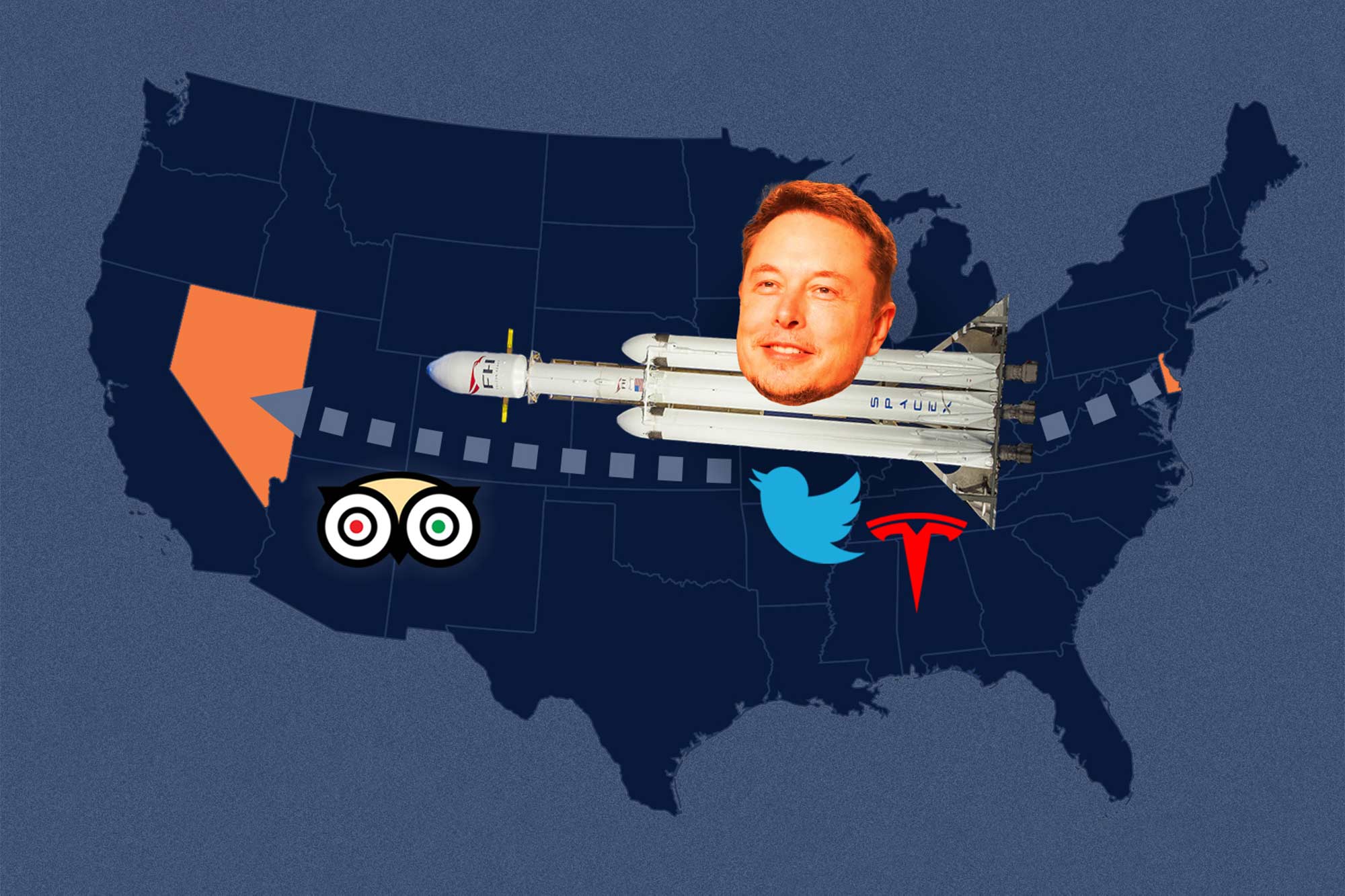And what’s funny is that the editors at [satirical publication] The Onion, of all places, picked up on what Nevada was doing and poked fun at it. Shortly after this change in the corporate law, The Onion wrote a satirical headline saying, “Nevada to Phase Out Laws Altogether.” The story suggested that car theft, murder and rape would be legalized over a five-year period.
Q. And it would appear some directors and officers picked up on this, too?
A. Well, Elon Musk has, and others are now following. … Nevada has long been second to Delaware in attracting out-of-state incorporations. After the legislature made “no liability” the default rule, we started seeing an increase in companies incorporating in Nevada.
Q. How do these numbers compare to Delaware’s lure for corporations?
A. Delaware’s corporate law still attracts around half of all publicly traded companies. Of the other half, most incorporate in their home state. But Nevada attracted close to 10% of out-of-state corporations, second only to Delaware.
Q. Why should this matter to investors or consumers?
A. I think it’s excessive protection that in some cases could be taken advantage of. Nevada adopted the law with the intention of attracting firms that are interested in more lax corporate law. Some of these firms may be ones that could benefit from regulation the most.
Q. What would be an example of the types of problems regulators have found with Nevada companies?
A. In my paper with David Smith from UVA’s McIntire School of Commerce, “What Happens in Nevada? Self-Selecting into Lax Law,” which was published in the Review of Financial Studies, we found that Nevada “attracts firms that are 30% to 40% more likely to report financial results that later require restatement than firms incorporated in other states, including Delaware.”
Q. What is the significance of accounting restatements?
A. It is indicative of aggressive or sloppy accounting, weak corporate control, manipulation of earnings or even fraud. It reduces a company’s credibility and tends to result in hits to their stock price.
Q. So how can Delaware compete to retain its corporate residents without going down the same path?
A. Most large companies don’t have a reason to go to Nevada. National law firms will continue to advise you to go to Delaware. Delaware attracts more than half of publicly traded companies. All the law firms are working in Delaware; all the financial firms are working in Delaware. Their courts are extremely efficient and the judges are experts in corporate law.
Firms go to Nevada if they’re interested in more protection, either because they are exposed to litigation, or because their state provides less protection, or both.
Elon Musk already moved Twitter, which is a private company, into a new holding company he established in Nevada – X Holdings Inc. – and there are discussions that he’s trying to move Tesla there, though he will need to get shareholder vote for the move because it is a public company.
Q. What does that tell you about Musk’s motivation?
A. Firms may have different motives for moving to Nevada. There’s a Tesla shareholders case in Delaware against Musk where the plaintiffs argue that he exerted too much influence on the Tesla board to award him a large compensation and bonus package. The court has previously found that he’s the controlling shareholder even though he owns less than 23% of the company, which under Delaware law exposes him to more litigation and higher judicial scrutiny. So that could be a motivation for him to move his firms to Nevada, where there’s much more limited liability for self-dealing transactions.
Q. Isn’t Nevada’s liability for “intentional misconduct” still a meaningful bar for bad actors?






